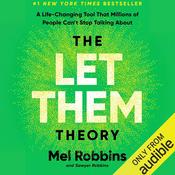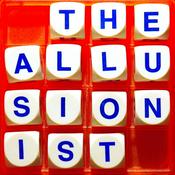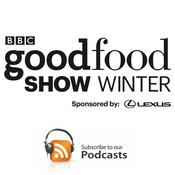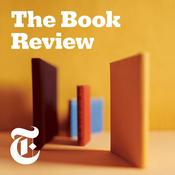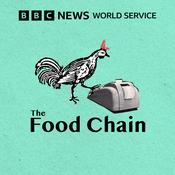541 episodes
Munk Dialogue with Andrew Coyne: Trump wants to de-escalate ICE crackdown and Canada is at the centre of a geopolitical crisis
29/1/2026 | 15 mins.For 72-hour advanced access to the full-length editions of Munk Dialogues with Andrew Coyne consider becoming a donor to the Munk Debates for as little as $50 annually, or $1.00 per episode. Go to www.munkdebates.com to sign up.
Rudyard and Andrew react to the explosion of anger in the U.S. over the killings in Minnesota by ICE agents. Is this the first time the U.S. President has had to respond to a public outcry and recalibrate his position? Andrew believes that the point of these ICE exercises has nothing to do with immigration reform. They are looking to provoke fear, anger, and terror in the population. Ultimately the responsibility rests with Trump: this is his policy, these are his people. In the back half of the show Rudyard and Andrew break down some of the big domestic developments from last week, specifically Mark Carney's Davos speech. Carney recognizes that Canada is at the centre of a geopolitical crisis. And while this has given him a boost in his personal approval ratings, he hasn't been able to convert that into support for the Liberal Party. Does Carney's Davos speech give us insight into how he will approach CUSMA negotiations? Andrew believes we should not invest too heavily in the success of these talks, and it's time to develop policies to reduce the cost of walking away from trade with the U.S.Friday Focus: Trump's Davos TACO, Carney's vision for Canada, and an AI deepfake blurs the lines of reality
23/1/2026 | 19 mins.Become a Munk Donor ($50 annually) to get 72-hour advanced access to full length editions of the Friday Focus podcast with Janice Stein. Go to www.munkdebates.com to sign up.
Rudyard and Janice begin the show with the remarkable-sized TACO Trump delivered this week, whipping the world into a frenzy over threats to take over Greenland. His tough talk turned into a whimper after a meeting with the NATO Secretary General and a framework of a deal that has not been accepted by European leaders. What happened behind closed doors that made Trump back down from these threats? How did the bond market play into this? Meanwhile Mark Carney's Davos speech was well received by the European elite, but what is his plan for Canada? How will he enact sweeping and fundamental change in this country that match the substance of his speech? In the second half of the show Rudyard and Janice discuss an AI-generated video impersonating former UN Ambassador John Bolton discussing Mark Carney's China visit. The convincing video - which has been viewed over 180,000 times - is a reminder of how easily AI can be used by interference and influence campaigns by foreign governments. What if 2026 is the year we can't tell what's real and what's not?Munk Dialogue with Andrew Coyne: Trump faces off with NATO allies over Greenland
20/1/2026 | 22 mins.To listen to the full episode consider becoming a donor to the Munk Debates for as little as $50 annually, or $1.00 per episode. Go to www.munkdebates.com to sign up.
President Trump refuses to rule out invading Greenland following revelations that his aggression towards the self-governing territory is a response to being denied the Nobel Peace Prize by Norway. We are now facing the very real possibility that the US will attack a NATO ally, putting everyone in a unique and untenable situation. Should the EU send troops to Greenland? As both a NATO member and a US neighbour Canada is faced with a serious dilemma. Andrew argues that we have to be an ally, and that means drawing a land in the snow and showing up for Greenland. It is now clear that NATO is hanging by a thread. What will be its successor? And what should we make of Trump's new 'Board of Peace' which critics believe is his attempt to undermine the United Nations?Friday Focus: Canada enters a 'new world order' and Trump threatens to invoke the Insurrection Act
16/1/2026 | 25 mins.Become a Munk Donor ($50 annually) to watch and listen to full episodes of Friday Focus with Janice Stein. Your donor membership comes with other great perks like access to the videos of our main stage debates and full length episodes of our weekly podcasts with Globe and Mail columnist Andrew Coyne.
Rudyard and Janice react to Mark Carney's trip to China this week and a dramatic shift away from Trudeau's hawkish doctrine which viewed China as an adversary. Carney understands that we are moving into a world where we will not be able to trade only with countries that share our values. Janice says this reset will allow Western Canada to resume their exports - mainly lobster, canola, and pork - to the Chinese market. But after years of being treated badly by China, should Canadians welcome this about face? In the second half of the show Rudyard and Janice turn to the U.S. and internal unrest over the killing of an American citizen by an ICE agent this week in Minnesota. Trump is threatening to enact the Insurrection Act which will give the government emergency powers and allow them to deploy the military to crush the protests without the consent of the governor or local police. This has been both a terrible week for the President and a frightening one for Americans who are concerned about their fundamental rights. What happens next will have huge implications for this fall's U.S. midterm elections.Munk Dialogue with Andrew Coyne: Jerome Powell stands up to Trump and why the West is reluctant to intervene in Iran
13/1/2026 | 21 mins.To listen to the full episode consider becoming a donor to the Munk Debates for as little as $50 annually, or $1.00 per episode. Go to www.munkdebates.com to sign up.
Rudyard and Andrew react to the U.S. Justice Department's criminal investigation into Federal Reserve chair Jerome Powell alleging he lied to congress about renovation construction costs. This administration is using trumped up charges and the instruments of the state to go after people they can't otherwise control. What makes Jerome Powell a more formidable opponent to Trump compared to others who have tried to stand up to the U.S. President in the past? In the second half of the show Rudyard and Andrew turn to Iran and the regime's brutal response to countrywide protests. What should we think of Trump's musings about intervening in this conflict? It has become fashionable to oppose any type of regime change following America's forever wars in Iraq and Afghanistan, but if the West does not intervene, what will be the cost of human life in Iran and the region?
More Arts podcasts
Trending Arts podcasts
About The Munk Debates Podcast
The Munk Debates podcast is an extension of the main stage events - in subject, speaker selection, tone and format. It will introduce the iconic brand - and its engaging debates about significant issues of our time. Audiences will hear strong and passionate arguments from both sides of an issue so they will have enough information to make up their own minds about where they stand.
Podcast websiteListen to The Munk Debates Podcast, Jane Austen's Paper Trail and many other podcasts from around the world with the radio.net app
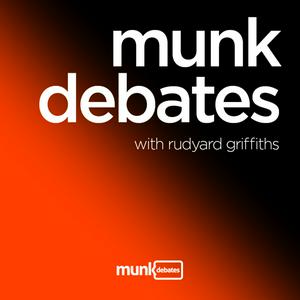
Get the free radio.net app
- Stations and podcasts to bookmark
- Stream via Wi-Fi or Bluetooth
- Supports Carplay & Android Auto
- Many other app features
Get the free radio.net app
- Stations and podcasts to bookmark
- Stream via Wi-Fi or Bluetooth
- Supports Carplay & Android Auto
- Many other app features


The Munk Debates Podcast
Scan code,
download the app,
start listening.
download the app,
start listening.











